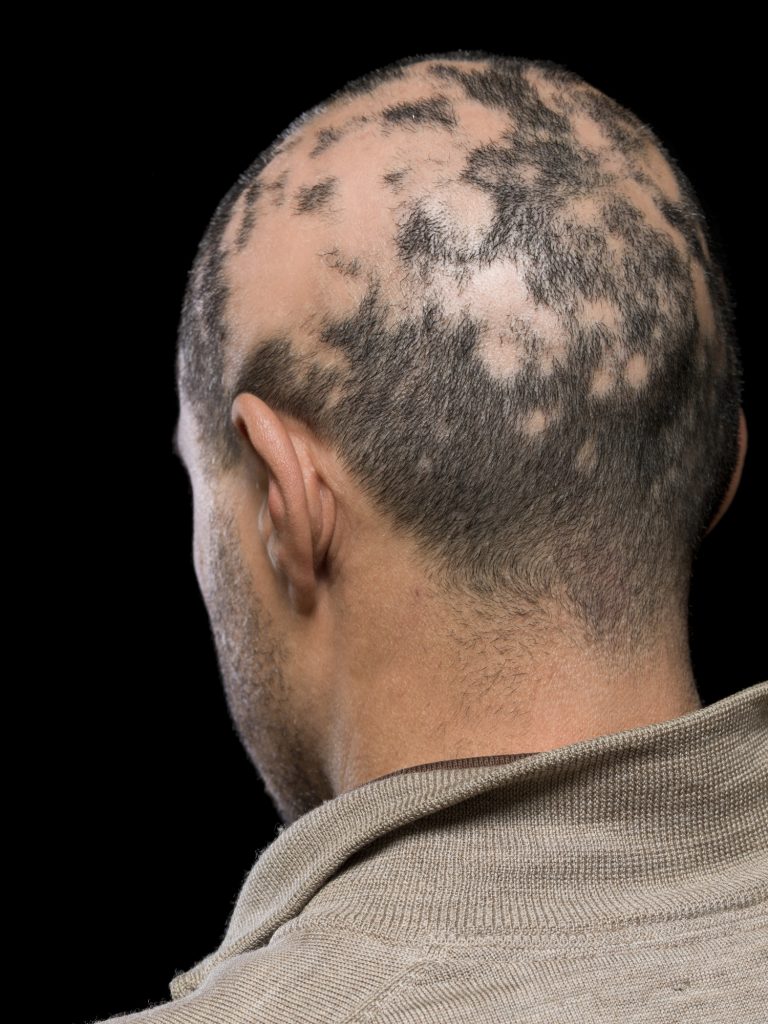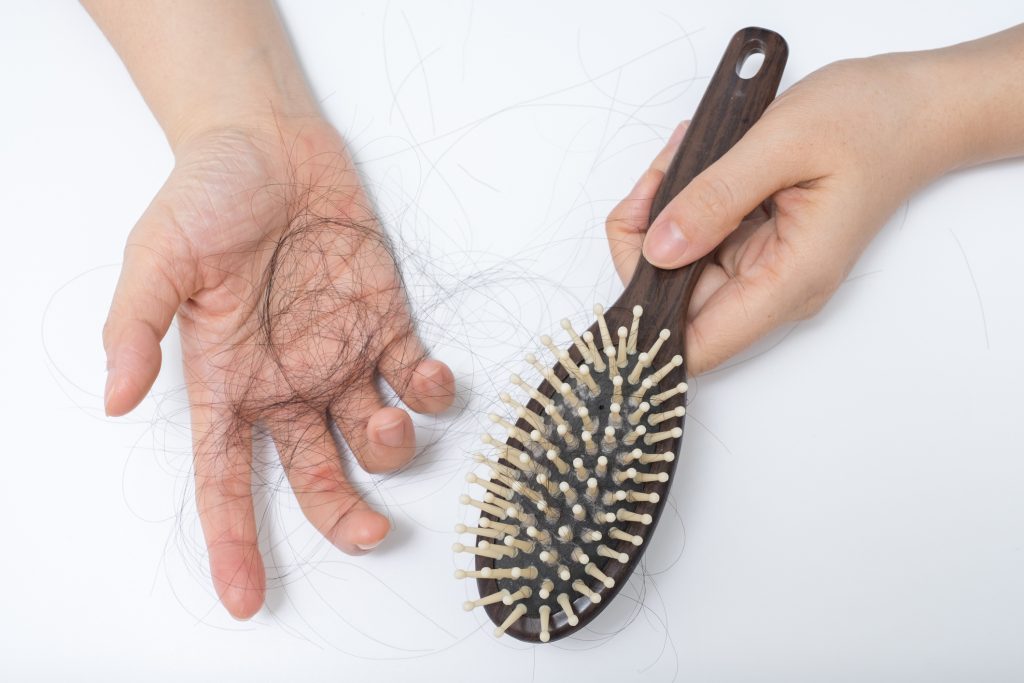Alopecia Areata Treatments from U.S. Dermatology Partners
What Is Alopecia Areata?
Alopecia Areata, also known as spot baldness, is a type of hair loss in which your immune system attacks hair follicles. This leads to areas of baldness on the scalp and body. In severe cases, a person with alopecia may even lose the hair of their eyebrows and eyelashes.
Find This Service Near You
Who Is at Risk for Alopecia Areata?

Alopecia areata, or spot baldness, occurs when the body’s immune system attacks the hair follicles.
Alopecia areata is fairly rare, affecting about 2% of Americans. It is most common in people under the age of 20, but it can affect children or adults of any age. It also affects both genders equally, as well as all ethnicities. People who have a family member with alopecia areata who began losing their hair before the age of 30 appear to be at slightly more risk.
Alopecia Areata Symptoms

Alopecia Areata affects both genders equally, as well as all ethnicities.
Alopecia areata’s primary symptom is hair loss on the scalp. The hair usually falls out in small, round patches, which is why this condition is commonly known as spot baldness. However, depending on the severity of your alopecia, hair loss can also occur on other parts of the body, including eyebrows and eyelashes.
The pattern of hair loss is unpredictable, and sometimes the hair may grow back and then fall out again, but this can vary dramatically from one person to the next.
It is important to note that hair loss can be caused by other diseases which may need medical attention, so you’ll want to consult with your doctor for a full diagnosis.
Alopecia Areata Treatments
Although there is currently no “cure” for alopecia areata, certain treatments can help regrow your hair or may be able to stop or slow down future loss. Medications like minoxidil could stimulate hair growth. A radiation treatment known as photochemotherapy is sometimes used to stimulate hair growth, and other treatment options include corticosteroid creams and ointments or steroid injections. Recent research has also shown that platelet-rich plasma therapy (PRP) is effective at treating hair loss due to alopecia areata.
There are many resources for those affected by alopecia, including the National Alopecia Areata Foundation, Alopecia World and Alopecia Support Group.
*Results may vary by individual
